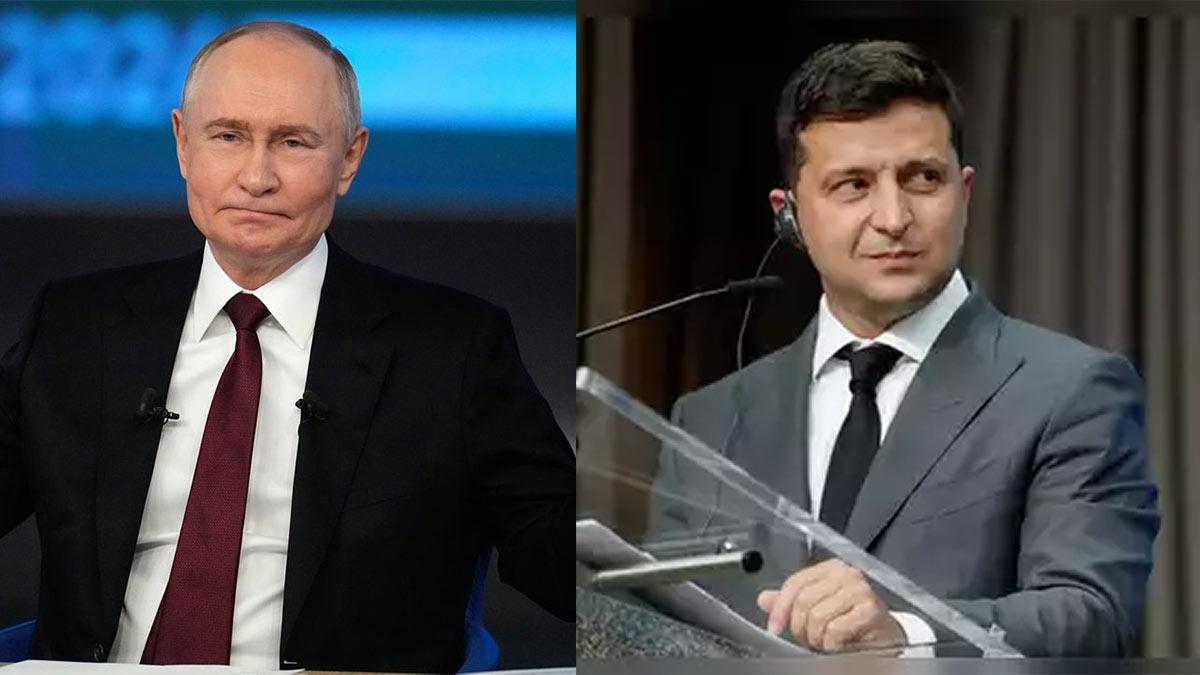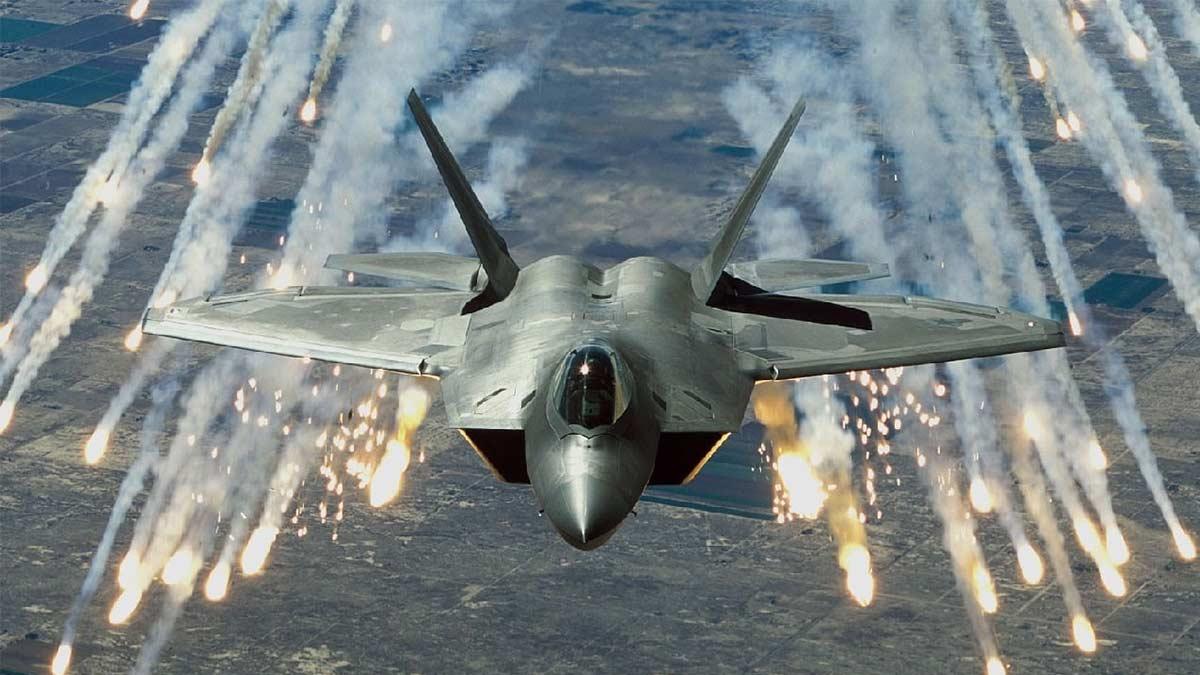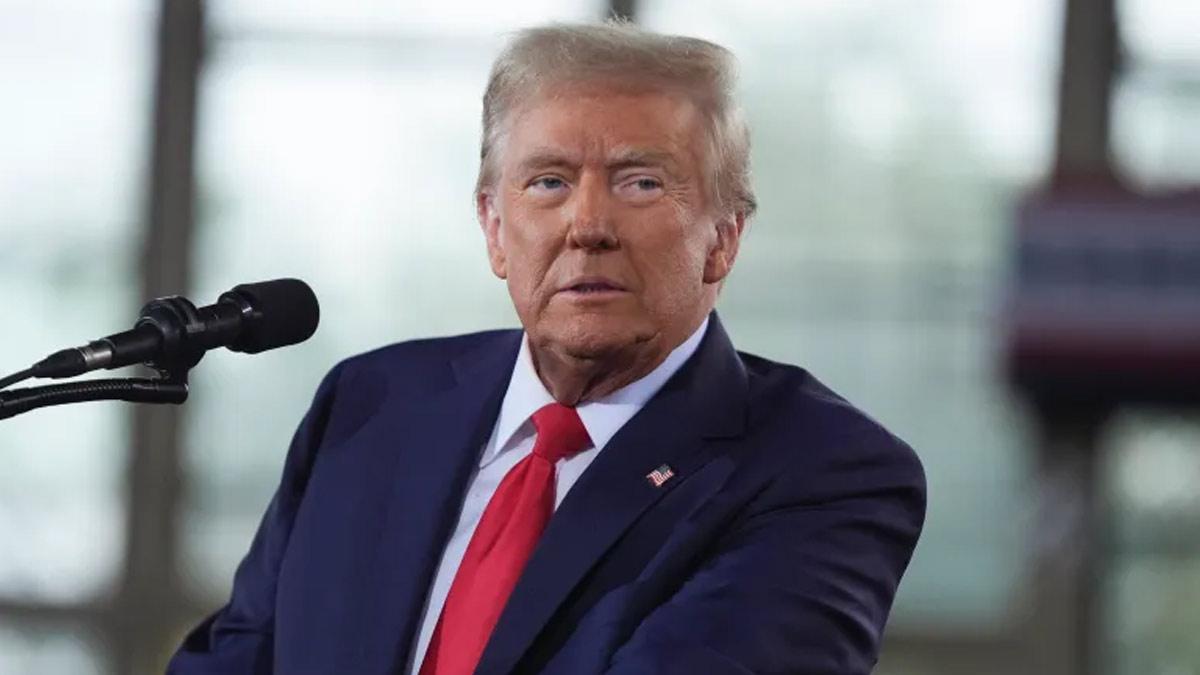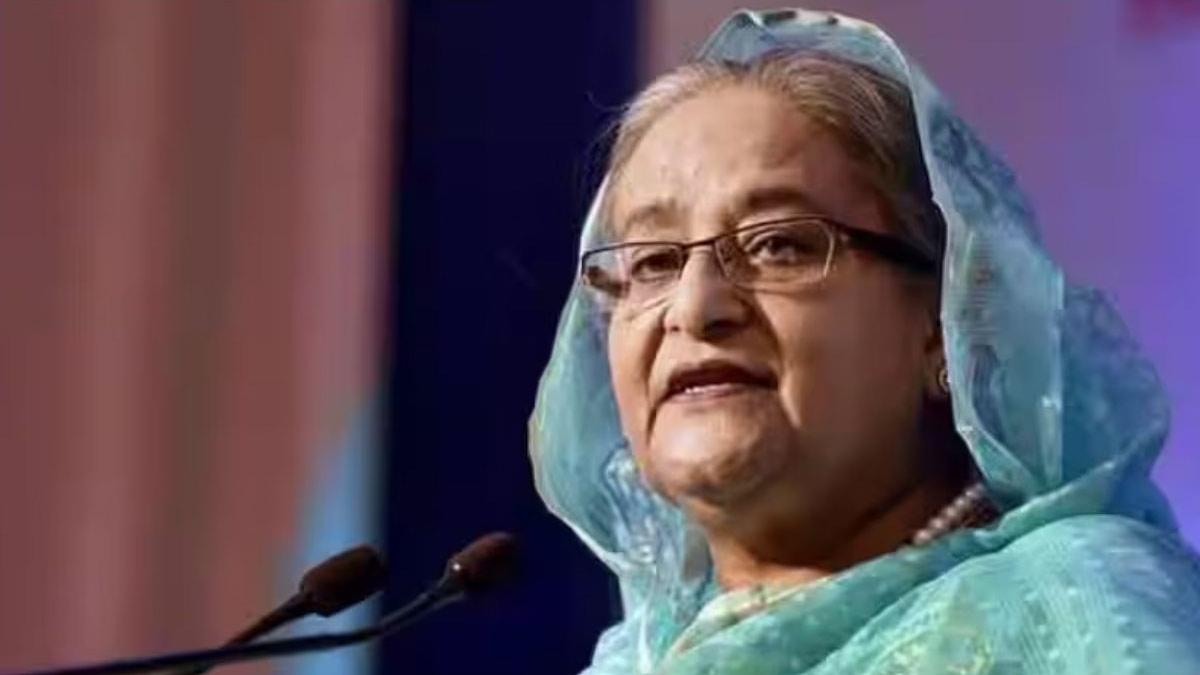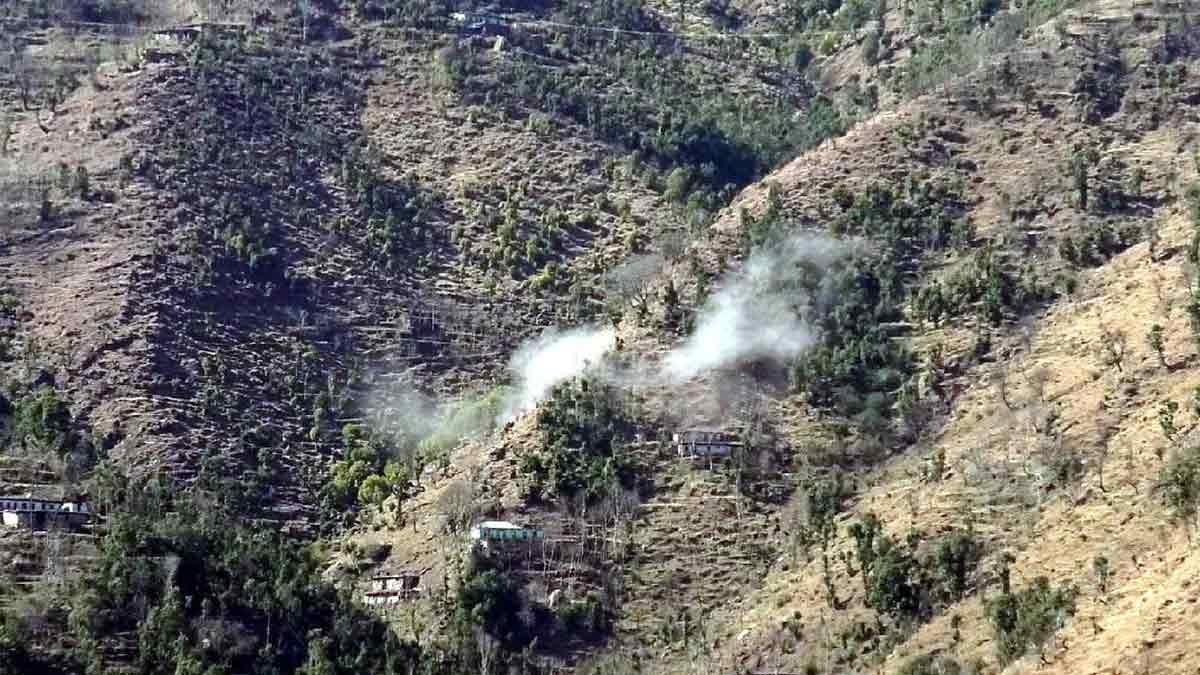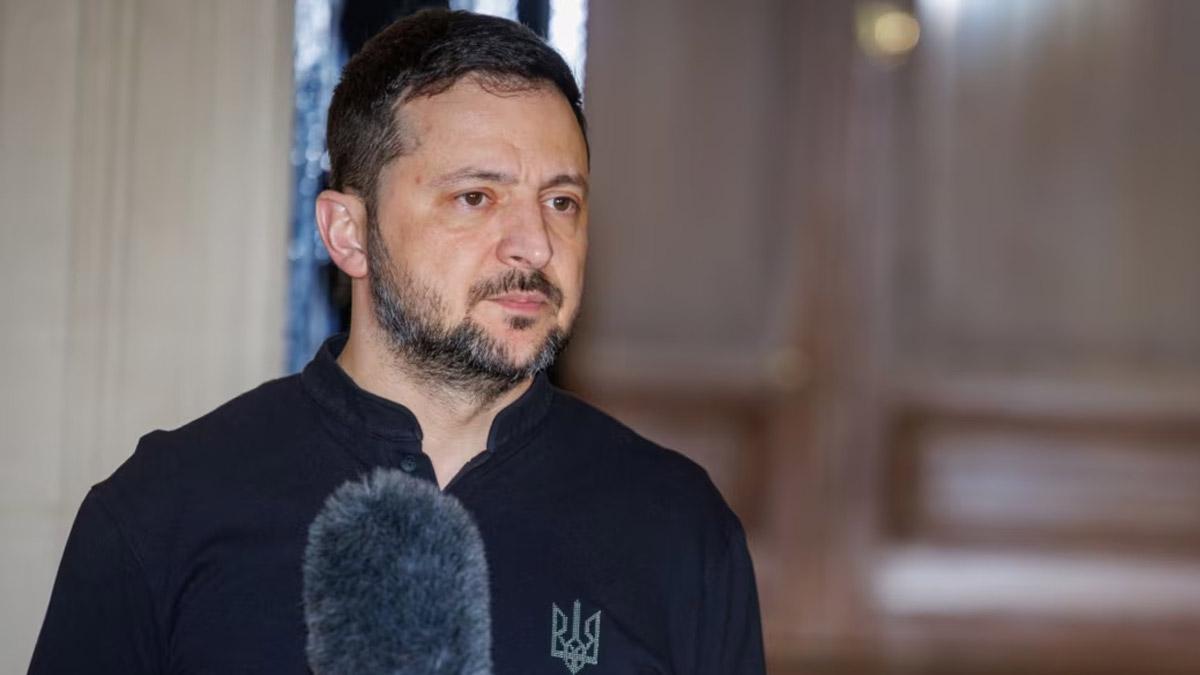The Easter truce announced by Russian President Vladimir Putin that lasted just briefly soon fell apart, with both Russia and Ukraine blaming the other for violating the truce meant to offer a humanitarian break in the conflict.
Ukrainian President Volodymyr Zelenskyy said that Russian troops violated the agreement the moment it started. Referring to a briefing by Commander-in-Chief Oleksandr Syrskii, Zelenskyy said, "since the start of the day [Sunday], the Russian army has broken Putin's ceasefire over two thousand times."
While no air raid alerts or missile attacks were reported on Sunday, Zelenskyy invited Moscow to suspend the application of missiles and drones against civilian targets for an entire month.
But Kremlin spokesman Dmitry Peskov told the TASS news agency earlier today that the ceasefire would not be renewed. The temporary halt in fighting was due to expire at midnight (21:00 GMT), but the U.S. State Department said it would like to observe the truce being extended.
Putin's surprise order on Saturday told Russian forces to stop all military activities along the front line, citing humanitarian grounds for the 30-hour break—one of the longest suggested pauses in the three-year conflict so far. But only hours after it was supposed to kick in, air raid sirens sounded over Kyiv and a number of other Ukrainian areas. President Zelenskyy called the gesture a PR stunt, accusing Moscow of persisting with its armed aggression.
Russia, however, asserted that Ukraine had breached the ceasefire more than 1,000 times by Sunday.
Zelenskyy stated in the morning, "Generally speaking, as of Easter morning, we can say that the Russian army is trying to produce the overall impression of a ceasefire, while in some places still making sporadic attempts to break through and cause Ukraine losses."
"In reality, either Putin does not control his army completely, or the fact shows that in Russia, they do not intend to make a real step towards the end of the war, and are interested only in positive PR reports," he continued.
Fighting was due to cease from 6pm Moscow time (15:00 GMT) on Saturday until Sunday midnight in Russia as a mark of respect for Easter, according to Russian officials.
But as Ukrainians went to Easter services, doubts remained about Russia's good faith. People in Kyiv doubted whether the ceasefire would last.
Natalia Malaieva remembered that the instant the ceasefire started, "Missiles and drones passed by. There were explosions from missiles," going on to say, "What kind of ceasefire is this?"
Echoing those words, Olha Malashuk said: "He [Putin] likely wants to rearm the troops … That is why nobody believes him anymore."
On Sunday, the Russian Defence Ministry issued a Twitter statement alleging Ukrainian troops had bombed Russian forces 444 times and carried out more than 900 drone strikes. The ministry claimed that the regions on the borders in Bryansk, Kursk, and Belgorod were also struck, leaving civilian fatalities and infrasturcute damage.
Russia's state news agency TASS quoted an unspecified operational source as saying that three blasts were heard in the Budennovsky district of Donetsk, territory controlled by Russia since 2014. Ukrainian forces were blamed for the attack, but Ukraine has not issued an official statement.
A representative of Ukraine's military confirmed that there had been some easing of fighting, but not an end to it.
It is going down, but it hasn't vanished," Viktor Trehubov said to national television. "Frankly, we didn't have much hope that this would happen," he said, representing Ukraine's eastern front.
In Moscow, Al Jazeera correspondent Yulia Shapovalova reported that both sides were blaming each other, but analysts pointed out the challenge of stopping all military operations at once. Nevertheless, she said, combat on the battlefield had become significantly quieter.
"Russia's response to this ceasefire is very good," Shapovalova informed.
"People pray that it will endure, and analysts are saying too that Russia and Putin would most likely be in a good position currently for an extended truce and peace talks, considering Russia's victory on the field and efforts of the US side too," she said.
It's a pure political move, with the aim to strengthen both internationally and domestically," said Andrei Fedorov, a former Russian deputy foreign minister.
"Easter is among the most significant holidays for Russia, and Putin wants to display that he's adhering to Russian Orthodox Church tradition," Fedorov told Al Jazeera.
"Meanwhile, it's a crucial test for him if Ukraine is going to do the same, because now when there is going to be a new round of negotiations on Ukraine, [and] it's very crucial for Putin to have genuine arguments that say, 'look, Ukraine is not abiding by the agreements. Ukraine is destroying the ceasefire.'"
Putin's declaration followed a statement by U.S. President Donald Trump that, if either Russia or Ukraine made peace moves too complicated, Washington would "take a pass" on attempting to mediate.
Speaking from Washington, Al Jazeera's Rosalind Jordan reported that neither side could afford to upset the Trump administration now.
"Especially now that they're saying very openly here in Washington that they are willing to walk away, despite President Trump's repeated declarations that he's sick of what he calls the 'carnage' in the war between Ukraine and Russia," she stated.
No statement from the Trump administration has been released over the weekend regarding the Ukraine situation.
In the meantime, Vladimir Sotnikov, associate professor of international relations at Moscow's Higher School of Economics, voiced alarm that Trump's intervention may be premature.
"Both sides – Ukraine and Russia – are still very far from sitting down at the table and trying to talk to each other," he said to Al Jazeera.
This was also something promised by President Trump," he continued, "but the fundamental issue, really, is that both sides still have deep mistrust of one another.
Read also| Putin Declares Unexpected 'Easter Truce,' Halts Russian Attacks on Ukraine Until Monday
Read also| White House Evaluates Legal Grounds to Remove Fed Chair Powell Amid Policy Disputes

